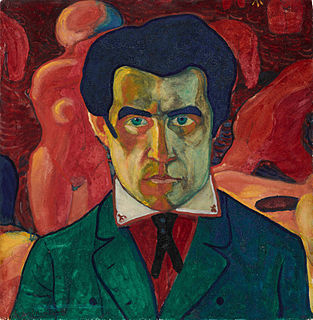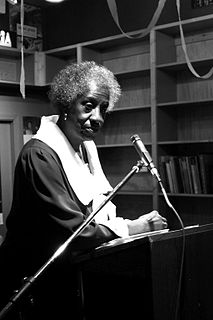A Quote by Henry Giroux
We're talking about the Communist Party, the Socialist worker's movement, those movements basically have been underlined. We have other movements, but they're not as powerful as the movements that we had then.
Related Quotes
What's more important is that we talk about movements; change happens through movements. The movement to end slavery, the movement to bring justice for those who have been left out of the system, movements to include women, movements around sexual preference - all these movements brought about change.
The emotion is the execution of a very complex program of actions. Some actions that are actually movements, like movement that you can do, change your face for example, in fear, or movements that are internal, that happen in your heart or in your gut, and movements that are actually not muscular movements, but rather, releases of molecules.
I think sex work gets over-mystified and overcomplicated because it's about sexuality, and women's sexuality in general. What strikes me when I look at sex worker organizations and sex worker movements, in the US especially, is that they're so in alignment with other longstanding progressive causes. If anything, sex workers have been at the forefront of some of these causes. There have always been sex workers at the forefront of social movements.
My own view - and I'm very open to hearing other perspectives - is that this movement-building needs to begin at home, in local communities. It isn't about trying to launch a brand new national party overnight. It's about people in communities coming together across lines of difference, bringing with them their movements, their families, and coming together and saying, "How can we together build a movement of movements here at home? What would that look like? What do we want to do right here in our communities?"
Historically the great movements for human liberation have always been movements to change institutions and not to preserve them intact. It follows from what has been said that there have been movements to bring about a changed distribution of power to do - and power to think and to express thought is a power to do- so that there would be a more balanced, a more equal, even, and equitable system of human liberties.
Movements are not radical. Movements are the American way. A small group of abolitionists writing and speaking eventually led to the end of slavery. A few stirred-up women brought about women's voting. The Populist movement, the Progressive movement, the anti-Vietnam War movement, the women's movement - the examples go on and on of 'little people' getting together and telling the truth about their lives. They made our government act.
You build movements and keep people in a struggle when it feels productive. Anti-capitalists have typically been the people in movements who have declared every gain to be a trick of the capitalist class to buy us off. That line isn't very inspiring, and it shows no sensitivity to how social movements actually succeed.
Change depends on people knowing the truth. Change depends on people speaking that truth out loud. That's what movements do. Movements educate people to the truth. They pass along information and ideas that many others do not know, and they cause them to ask questions, to challenge their own long-held beliefs. ... Movements are the way ordinary people get more freedom and justice. Movements are how we keep a check on power and those who abuse it.
Venezuela, Bolivia and Ecuador lived through times of cruel and ruthless capitalism where the workers, the masses of the population, saw themselves living in a precarious state of employment and subsistence conditions. The impact of this reality took hold and impacted the evolution of the social situation of those countries and even though that produced movements that were not exactly political movements but social movements.


































